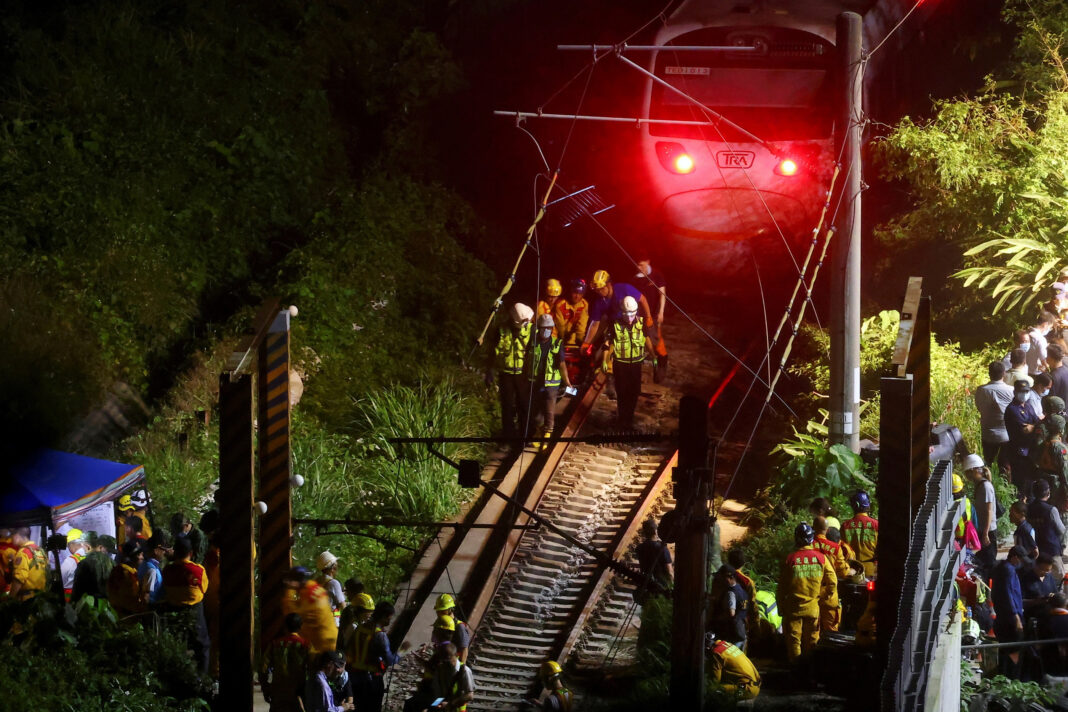📰 Overview of the Incident (Train surfer taipei keelung)
On Saturday evening, a highly dangerous and illegal act of train surfing was reported on Taiwan’s Taroko Express service. A man, surnamed Tsai (蔡), was seen clinging between two carriages as the train traveled from Taipei to Keelung, prompting immediate concerns from authorities and sparking public safety debates.
The Taiwan Railway Corporation (TRC) and the Railway Police Bureau confirmed that Tsai had missed reboarding the train properly at Nangang Station, after briefly disembarking to purchase something. In a hasty attempt to not miss his ride, Tsai latched onto the coupling area between the third and fourth carriages—a move that could have easily turned fatal.
🚆 What Exactly Happened?
- Tsai was initially a passenger on a Taitung-bound Taroko Express train.
- He got off at Nangang Station but couldn’t re-enter before the doors closed.
- Instead of waiting for the next train or seeking assistance, he climbed onto the external link between train carriages.
- TRC personnel at Xizhi Station noticed the unusual sight on security cameras and reported it immediately.
- The train was stopped at Qidu Station in Keelung, where Tsai was rescued unharmed by railway police.
- The incident caused a 5-minute delay, but no injuries or collisions occurred.
⚖️ Legal Consequences and Fines
Following the incident, Tsai, who is reportedly around 40 years old, now faces a fine under Articles 57 and 71 of Taiwan’s Railway Act. According to officials:
- Fines range from NT$1,500 to NT$7,500 (approx. US$45–225).
- He could also face further questioning or mandatory safety education.
- Authorities have emphasized that penalties could become stricter in light of public safety concerns.
📉 Broader Implications and Commentary
While the situation fortunately didn’t result in tragedy, it raises critical questions:
- Why aren’t there more safety personnel at busy stations like Nangang?
- Could platform barriers or automated alerts have helped prevent this?
- Does the public understand the severe risks of stunts like train surfing?
This case isn’t just about one man making a poor decision. It points to the need for stronger rail safety education, faster platform communication systems, and increased enforcement to deter risky behavior.
Train surfing has been a rare but increasing issue globally, often fueled by viral content online. Though there’s no indication Tsai intended to create social media content, copycat incidents remain a risk. Taiwan Railways should consider nationwide safety campaigns targeting younger audiences who may romanticize such stunts.
🧠 Expert Insights
Transportation analysts in Taiwan say that while fines are in place, they may not be a strong enough deterrent.
“Had the train jerked suddenly or passed over a sharp bend, Tsai could have been killed instantly,” said transportation safety expert Lee Chih-hung. “This isn’t just an illegal act—it’s a death wish.”
📢 TRC’s Response
Following the event, Taiwan Railway Corporation issued a strong public warning urging all passengers to respect safety guidelines and never attempt to re-enter or latch onto a moving train. They’ve vowed to review their station monitoring protocols and may consider additional safety barriers at key stations.
❓ FAQs
What is train surfing and is it illegal in Taiwan?
Yes, train surfing—riding outside of a moving train—is illegal and extremely dangerous. In Taiwan, it is punishable by fines under the Railway Act.
Why did the man train surf?
He reportedly stepped off the train to purchase something and tried to reboard after the doors had closed. In a panic, he decided to latch onto the train externally.
Was anyone hurt?
Thankfully, no one was injured. The man was rescued safely, and train services resumed after a short delay.
Could the train have derailed or suffered mechanical issues?
While unlikely, sudden braking or misbalance could have endangered both the man and other passengers.
Could Tsai face criminal charges?
As of now, he’s being fined under the Railway Act. Further legal action hasn’t been announced, but repeat offenders or dangerous actions could lead to escalated charges in the future.


